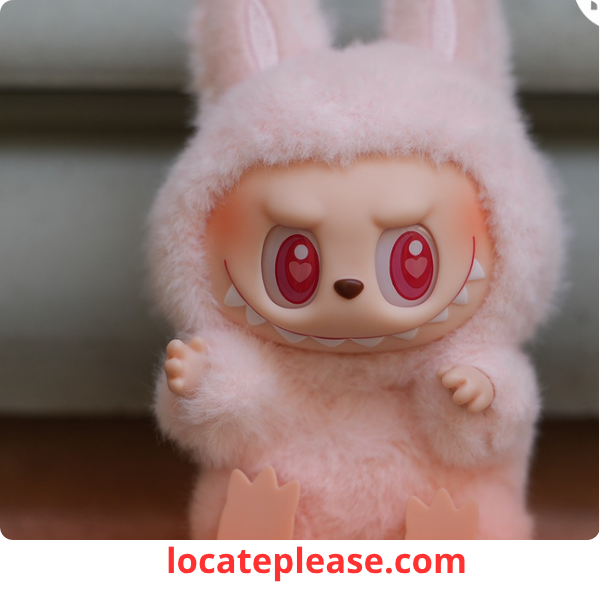In a move that’s sparked both outrage and dark humor online, the city of Erbil, in the Kurdistan Region of northeastern Iraq, has officially banned the sale of Labubu dolls — the viral, wide-eyed plush toys beloved by collectors worldwide.
But this isn’t just about toys.
It’s about culture, consumer rights, and a fast-spreading internet conspiracy that’s turned a whimsical collectible into a symbol of “demonic energy” for some — and corporate manipulation for others.
Authorities have already confiscated around 2,000 Labubu dolls and taken legal action against six businesses, citing consumer exploitation and cultural incompatibility as the driving reasons behind the ban.
Why Labubu? The Rise of a Global Sensation
For the uninitiated: Labubu is a mischievous, elf-like character created by Hong Kong-based artist Kasing Lung. With pointy ears, a toothy grin, and piercing eyes, Labubu is part of a popular series of blind box collectible toys produced by the brand Pop Mart.
Each blind box contains a random Labubu design — from cute and colorful to spooky and surreal — fueling a global obsession with rarity, surprise, and collection.
Their appeal?
- The thrill of the unknown
- The artistry and design
- The emotional connection fans develop with the characters
But in Erbil, that thrill has turned into frustration — and fear.
The Real Reason for the Ban: Consumer Exploitation
According to Hogir Ali, director of Erbil’s commercial monitoring body, the ban isn’t just about looks — it’s about unfair sales practices.
The “blind box” model, while fun for many, has been exploited by sellers:
- Advertised low-cost dolls are never in stock
- Customers are pressured into buying more expensive sets
- Some sellers falsely claim certain rare versions are available
Ali told Rudaw, a local news outlet:
“These sales tactics misled consumers, especially when lower prices were advertised for dolls that were unavailable, pushing buyers toward more expensive options.”
In essence, the element of surprise became a tool for manipulation — and authorities stepped in.
Cultural Concerns: “Far From Our Traditions”
Beyond commerce, there’s a deeper layer: cultural identity.
Ali added:
“The appearance of the doll is far from our customs and traditions.”
And he’s not alone in that view.
With their wide, unblinking eyes, sharp teeth, and eerie smiles, Labubu dolls have unsettled some residents. To critics, they don’t look like playful elves — they look like otherworldly creatures.
Which brings us to…
The Dark Conspiracy: Labubu vs. Pazuzu
The internet, of course, ran with it.
Almost immediately, social media users began drawing comparisons between Labubu and Pazuzu — a demonic figure from ancient Mesopotamian mythology.
Pazuzu, the king of wind demons, is depicted with:
- A lion’s head
- Bird talons
- Wings
- A grotesque, grinning face
Sound familiar?
Pazuzu also gained modern infamy as the demon possessing Regan in the 1973 horror classic The Exorcist.
Now, viral posts claim:
- Labubu dolls “emit negative energy”
- They’re “spiritual traps” or “occult symbols”
- Some users have even posted videos of themselves burning the dolls in ritualistic fashion
One TikTok user claimed:
“This isn’t a toy. It’s a vessel.”
The Artist’s Response: Whimsy, Not Witchcraft
Kasing Lung, Labubu’s creator, has never claimed any dark inspiration.
In interviews, he describes his work as rooted in Nordic folklore, fairy tales, and childhood imagination — not ancient demons.
Labubu, he says, is meant to be playful, mysterious, and full of wonder — a character that sparks storytelling, not fear.
Yet, in the age of viral myths, artistic intent often gets lost in the noise.
A Familiar Pattern: From Cabbage Patch to Furby
This isn’t the first time a toy has been accused of being “satanic.”
- Cabbage Patch Kids (1980s) – Blamed for consumer frenzy and “unnatural” attachment
- Furbies (1990s) – Rumored to be recording conversations or “speaking backward”
- Rainbow Brite and My Little Pony – Subject to bizarre moral panics
Every generation has its “evil toy” panic — often rooted in fear of the new, the unknown, or mass consumerism.
Final Thoughts: A Toy, a Trend, and a Warning
The Labubu ban in Erbil is more than a quirky news story.
It’s a collision of modern consumer culture, tradition, and digital paranoia.
While the consumer protection angle is valid — blind box sales can be manipulative — the demonic panic feels like another chapter in humanity’s long history of fearing what it doesn’t understand.
So, are Labubu dolls evil?
No.
Are they being used to exploit buyers?
Sometimes — and that is worth regulating.
But banning them over fears of ancient demons?
That’s not protection.
That’s myth overtaking reality.
In the end, Labubu may be many things — cute, creepy, collectible —
But one thing’s for sure:
👉 This little monster has become a giant symbol of our times.
Sometimes, the scariest thing isn’t the toy…
It’s what we project onto it.






